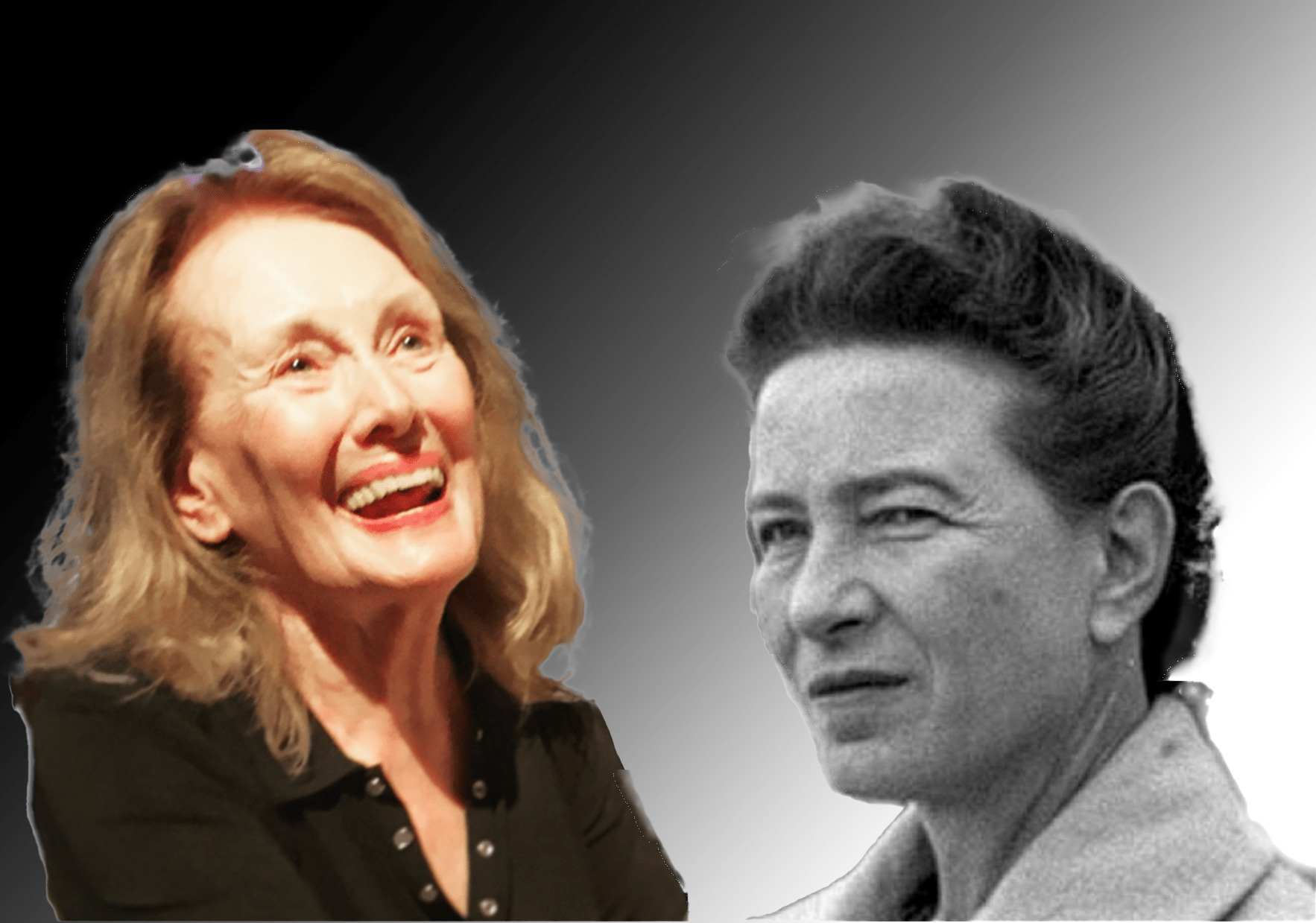The Auto / Bio / Fiction series of talks and seminars resumes after the Christmas break with a focus on Annie Ernaux.
11 January 2024, 5.30pm UTC (online)
Guido Mazzoni, “Like everyone else. Annie Ernaux’s The Years”

In this talk I will discuss Annie Ernaux’s The Years (Les Années, 2008), a text for which Ernaux invented a new way of understanding autobiography by mixing personal history and collective history, speaking impersonally or in the first person plural, and reinventing the use of tenses.
The Years is both a collective historical novel and Ernaux’s personal search of lost time: “a slippery narrative composed in an unremitting continuous tense, absolute, devouring the present as it goes, all the way to the final image of a life […]: a sort of impersonal autobiography”, as we read in the last pages of the book.
Carole Sweeney, “Writing feminist philosophy: Annie Ernaux and Simone de Beauvoir”
 Observing how Simone de Beauvoir made it possible for philosophy to engage with women’s lives, Toril Moi has noted: ‘ Beauvoir indicates that she thinks of the ordinary and the everyday as integral to her philosophical project of analyzing women’s situation.’ [Toril Moi, What Is a Woman? And Other Essays (Oxford: Oxford University Press, 1999), p. 177.]
Observing how Simone de Beauvoir made it possible for philosophy to engage with women’s lives, Toril Moi has noted: ‘ Beauvoir indicates that she thinks of the ordinary and the everyday as integral to her philosophical project of analyzing women’s situation.’ [Toril Moi, What Is a Woman? And Other Essays (Oxford: Oxford University Press, 1999), p. 177.]
Using what she regards as the seductive ‘snare’ of domesticity as a way of examining the ways in which being a housewife and mother vitiated, amongst other things, women’s potential for intellectual or philosophical contemplation, de Beauvoir’s The Second Sex examined how domesticity (especially in the post-war French context) is fundamentally inimical to women’s transcendence. Recognising the profound influence that The Second Sex and the subsequent novels had on her own life and writing, Annie Ernaux has written of the ‘running threads’ that link her work to de Beauvoir’s [Ernaux, ‘The “running thread” connecting me to Simone de Beauvoir’].
However, while Ernaux greatly admired The Second Sex’s rigorous demythologisation of women’s lives, she wrote in her diary of de Beauvoir’s novels that ‘… I will never write like this’. While both writers share a similar commitment to the objectives of littérature engagée, Ernaux thought that de Beauvoir showed an ‘indifference to writing as subject’, whereas she believes that ‘how to write’ is inseparable from ‘what to write.’
I suggest here that Ernaux’s work continues to examine de Beauvoir’s conviction that feminist philosophy can arise from attention to women’s ‘living realities’, thus enlarging the possibility of locating transcendence in the ‘ordinary and the everyday’. I will also discuss how Ernaux’s use of auto-fiction (a label she dislikes), the agility of the ‘transpersonal I’ and l’écriture plate, work to avoid the instrumentalisation of philosophy in fiction that she identified (although more recently retracted) in some of de Beauvoir’s novels.
Attendance is free but booking is required to receive a link to attend. Booking has now closed. Watch the video recording of the seminar:
The speakers
Guido Mazzoni is Professor at the University of Siena. He has been a fellow at the École Normale Supérieure, Paris (1994-1995), Lecturer at University College London (1995-96), Fulbright Visiting Scholar at the University of Chicago (2003-04), Italian Affiliated Fellow at the American Academy in Rome (2007), Visiting Professor at the École Normale Supérieure, Paris (2010), University of Chicago (2011), Scuola Normale Superiore, Pisa (2016), and University of California, Berkeley (2016), and Fellow at the Italian Academy, Columbia University, New York (2018). He teaches at the Molly Bloom Creative Writing School in Rome and at the Master School in Creative Writing at IULM, Milan. He is the author of three books of poetry, La scomparsa del respiro dopo la caduta (in Poesia contemporanea. Terzo quaderno italiano, edited by F. Buffoni, Guerini, 1992), I mondi (Donzelli, 2010), La pura superficie (Donzelli, 2017), and Grammaire. Choix de poèmes 1997-2017 (Alidades, 2019). His books of literary theory and criticism include Forma e solitudine (Marcos y Marcos 2002), Sulla poesia moderna (Il Mulino, 2005) (French translation: Sur la poésie moderne, Garnier Classiques, 2014; new English version On Modern Poetry, Harvard University Press, 2022); Teoria del romanzo (Il Mulino, 2011) (English translation: Theory of the Novel, Harvard University Press, 2017); and I destini generali (Laterza, 2015).
Carole Sweeney is Professor of Modern Literature in the Department of English & Creative Writing at Goldsmiths, University of London. Amongst other publications on modernism, Francophone literature and contemporary women’s writing, she has written three books, From Fetish to Subject: Race, Modernism and Primitivism (Praeger, 2001); Michel Houellebecq and the Literature of Despair (Bloomsbury, 2012); Vagabond Fictions: Gender and Experiment in British Women’s Literature 1945-1970 (EUP 2021). She is currently working on a new monograph, Domesticity, Dwelling, and Feminist Philosophy in Contemporary Women’s Writing looking at the work of Anna Burns, Claire-Louise Bennett, Annie Ernaux, Rachel Cusk, Deborah Levy, Svetlana Alexievich, Han Kang and Zadie Smith. She is the Pathway Convenor for the MA in Literary Studies: Modern and Contemporary Literature on which she teaches modules including Modern and Contemporary Women’s Writing: 1920s to the Present and Reading and Writing Creative Criticism: From Montaigne to #Me Too.
